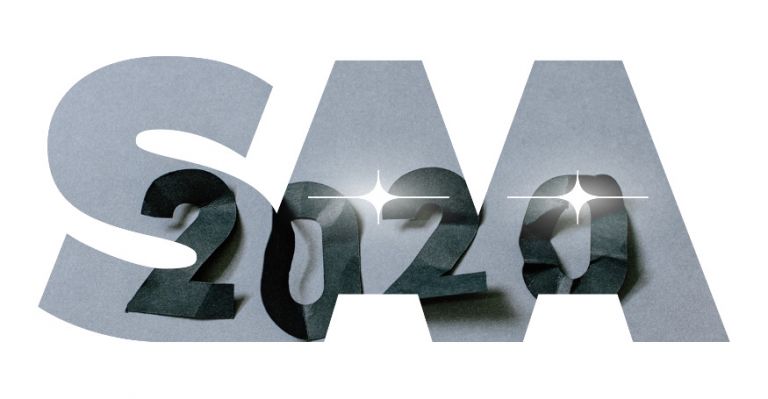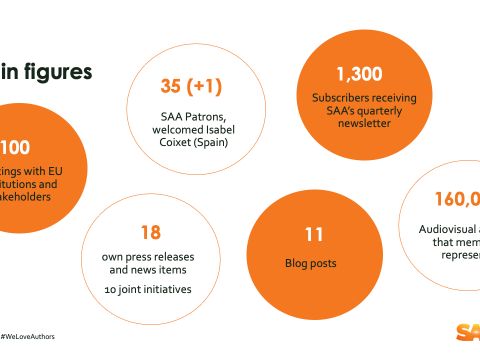2020 brought the cultural and creative sectors closer together

Little did we know that 2020 would turn out the way it did, although the road is still long to recovery, I am hopeful that we will turn a corner by the end of 2021. When the COVID-19 pandemic broke out, the SAA swiftly shifted its priorities. The health crisis led to more cooperation and coordinated action within the cultural and creative sectors than before.
The first thing we did at the SAA was to virtually sit down with our members to exchange information about the situation and how to best respond. We carried out two surveys and quickly communicated about the invaluable financial and social support collective management organisations have been provided to authors (see our press releases on 29 May 2020 and 9 March 2021).
The SAA teamed up with broad alliances of pan-European associations, signed 10 initiatives addressed to the EU and Member States regarding emergency budgetary measure and earmarking of funding for recovery for the cultural sector (see our news section). The EY study, commissioned by GESAC and supported by the SAA, about the cultural and creative economy before and after COVID-19, was - and continues to be - referred to by press and in many reports and initiatives since.
Powerful testimonies with SAA Patrons Urša Menart (Slovenia), Julie Bertuccelli (France) and Roger Michell (UK), demonstrated the importance of royalties, in particular due to the difficult work situation the crisis has caused authors. This is why our campaign for an effective implementation of Article 18 (the principle of fair and proportionate remuneration) of the Copyright directive, remained at the top of our agenda. Towards the end of the year, we organised a successful event “The new Copyright legislation: making the most for next generation authors”. More than 100 participants showed up, and for our second one in March 2021, the audience doubled. The latter was dedicated to Collective management: A safety net for authors and performers, together with the performers organisation AEPO-ARTIS. A third event, an expert seminar, is planned for June this year.
Besides interacting with policy-makers through our events the SAA also submitted three positions to the European Commission’s consultations: AVMS directive guidelines and implementation (18 March), Digital Services Act (8 September) and Article 17 of the Copyright directive guidelines (10 September). The European Parliament continues to be our strongest ally and partner. Its Cultural Creators Friendship Group delivered a video message on Article 18 to our first event and participated with 3 MEPs to our second event. In 2021, the SAA will continue to give its inputs to the Parliaments work, in particular to two reports in the Culture Committee: on the situation of artists and the cultural recovery in Europe and on the Media and Audiovisual Action Plan, and to a report in the Legal Affairs Committee on Intellectual Property Action Plan to support the EU’s recovery and resilience.
Finally, 2020 was clearly not the year to festively celebrate our 10th anniversary, we did though take the occasion to change our visual identity with a new logo. We received two birthday greetings, one from Mariya Gabriel, Commissioner for Innovation, Research, Culture, Education and Youth (and another one from Helga Trüpel, former MEP. On our social media, we shared how the SAA started by Barbara Hayes (Chair), 2010-2020 in 12 images (photos from our archives) and how SAA Patrons have contributed to the SAA’s work.
Although we regret not to have had the chance to meet in person, we were pleased to see that our members participated more and with more representatives per organisation to our online meetings and activities, than otherwise possible at physical meetings in Brussels. With the vaccine rollout, we are hopeful that, by the end of 2021, we will combine our experiences of 2020’s online meetings and home-working and find a balanced middle-ground where we can meet both virtually and physically.

